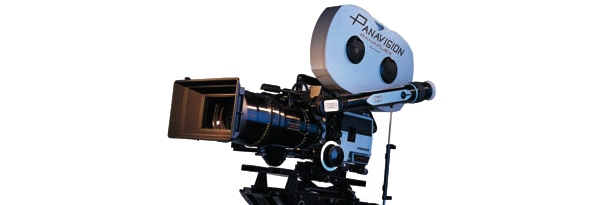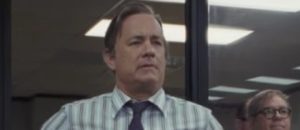It’s the end of an era – or very nearly so. The major manufacturers of motion picture cameras have all discontinued production of film-based cameras to focus exclusively on digital cameras. Nostalgic cinephiles will no doubt shed a tear at the loss, but will general audiences even notice?
Creative Cow magazine reports that manufacturers Panavision, ARRI and Aaton have all pulled the plug on film cameras within the last year. The writing has no doubt been on the wall for some time now. According to the article, ARRI claims that “The demand for film cameras on a global basis has all but disappeared.” The founder of Aaton says that, “Almost nobody is buying new film cameras… We wouldn’t survive in the film industry if we were not designing a digital camera.”
Does this mean that no movies will be shot on film anymore? Not quite. There are plenty of existing cameras available out there in the world market, and film stock is still being produced by companies like Kodak and Fuji (though undoubtedly in much lesser quantities than years past). Directors who prefer the film look (Steven Spielberg has been a big proponent) will still be able to shoot movies on film if they want. For a while, anyway. With no new cameras being made, maintenance and upkeep of existing cameras will become a specialized trade, even more so than it already is. The ARRI representative believes that movie production will be 85% digital within two or three years, and that film usage will continue to dwindle after that point.
It hardly seems like very long ago that critics and commentators were decrying the emergence of digital cinema, both in terms of movie production and theatrical projection. In a famous 1999 essay, Roger Ebert wrote, “I have seen the future of the cinema, and it is not digital.” His feelings were widely shared. (I’ll admit that I was anti-digital for a while.) At the time, digital photography still had a smeary, cheap, “soap opera” look to it, and digital projection was low resolution and artifact-ridden. In the meantime, of course, digital cameras have made great strides toward mimicking the traditional film look, and digital projection has largely supplanted film prints in theaters.
Most audiences today, especially younger audiences, have taken the transition in stride, if they’ve even noticed at all. Yet to those who care about such things, digital photography still doesn’t quite look like film. It’s not better or worse, necessarily, but different. It has different textures and a different aesthetic. I suppose that over time, both artists and audiences will become so accustomed to digital that film will look downright quaint.
What concerns me is that so many of today’s movies are limited to 2k resolution. Either they’re shot with 2k digital cameras, or shot on film and then post-produced with 2k Digital Intermediates. 4k or higher photography and DIs are still very rare. Whereas pure film productions can be scanned at higher resolutions to resolve more detail from the photographic emulsion, these digital productions are forever locked to their original resolution. Eventually, as technology advances and we watch our movies on higher-resolution screens (both in theaters and home), today’s digital movies will look very dated and primitive. In that regard, film is still timeless in a way that digital may never be.
[via Salon]






Jane Morgan
The tech specs for the Ultra HDTV standard (4320p) were just finalized.
16x better than Blu-ray, UHDTV is getting ready to launch in 2016.
And the BBC intends to trial UHDTV during the 2012 Summer Olympics.
The death of film and the rise of digital is something I’ve been looking forward to for 15 years.
Roger Ebert can go fuck himself.
EM
I’m happy to see film go away on ethical grounds. Most of you probably don’t care, but photographic film, including motion-picture film, is coated in an emulsion which is made in part with gelatin. Gelatins, whether used for photographic, culinary, or other purposes, are typically made from the collagen in the bones and flesh of various animals, although plant-based alternatives do exist. In a world that largely does not share my philosophy on animal ethics, I make a lot of compromises, and one of them is that I accept entertainments shot and/or distributed on film. (Another compromise is that I accept entertainments which show meat, leather, etc.—though on the other hand I refuse to ever see Cannibal Ferox.) While I may begrudgingly accept film, I would be happier seeing film phased out altogether.
My next wish is for candymakers to follow suit. In the past I’ve seen candy labels list one of the ingredients as “animal or vegetable fat”. “Or”!!! Oh, well—I’ve bought and eaten the candy anyway. But since I don’t buy candy at the movies, I suppose the issue is not really on-topic here.
VIOZ
Remember what digital music promised? We’re now stuck listening to files compressed to 256kbps (and just recently).
Remember what High Definition digital TV promised? Browse through the channels for a while and tell me how they look.
Remember what digital photography promised? Take a look at your friends albums at Facebook.
Remember what digital cinema promised? (TO BE CONTINUED…)
Jane Morgan
(A) Audio CDs have a bitrate of 1411 kbps.
(B) Look at Blu-ray. Compare it to 480i analog.
(C) Recall the state of amateur pornography pre-digital photography.
(D) Wait until you see ‘The Amazing Spiderman.’ Shot on Red Epic.
William Henley
Your points are all taken because, for the vast majority of people, that is good enough. I have noticed the quality of my HD programing drop dramatically over the past few years as my satelite provider tries to cram in more and more HD channels. I complain, but most people just don’t notice, or care. Shoot, how many people do you know are still running SD to their HD sets?
As for pictures on facebook, Facebook does now allow High-Res photos. I normally do that on mine. Takes about 10 times longer to upgrade, but I do get comments from people wondering why my photos look so much better than theirs.
There is NOTHING wrong with digital photography, but rather with the photographers. I can give my friends film-cameras, and probably get just as bad, if not worse, pictures than those that they are posting on their facebook walls.
As far as film, I am okay with film going out AS LONG AS we are shooting our digital at fairly high resolutions. I am talking 8k or perferably higher – I still like to see movies at the IMAX, and really don’t want to see some crap upconverted (Hubble was painful to watch – only maybe a quarter of the movie was in IMAX, the rest was upconverted HD, SD and other sources).
Same way with digital photography, you can get GREAT results if you use a camera with a high-pixel count, an awesome CCD, and someone who knows how to take pictures. That being said, there are a bunch of cheap cameras out there, and people who take pictures of themselves in the bathroom mirror.
That being said, I have been known to grab my phone myself if I do not have my good camera with me.
Back on topic, I am fine with the death of film, as long as we are not shooting video at 2k. Anytime you replace something tried and true, what you replace it with needs to be superior to what we used before.
VIOZ
And it gets to a point where everybody just gets used to it because the market always finds a way to “cheapen” any technology: be it reduce the bandwith for each Satellite TV channel to add more or compress the audio from a CD to store a million song on your player; that’s what I meant.
We already watch dim movies because cinemas refuse to remove the 3D filter on the projector. Years from now we’ll look back at Blu-ray as the last time zeros and ones liked us.
Chad Lawless
I’m not a film maker and have no real dog in the fight. But, to wit:
I seem to remember Steven Spielberg going down to Austin to hang out with Robert Rodriguez to learn more about digital film making (don’t remember when, but it was pre-Sin City). And afterwards, Spielberg likened using film to wine bottles keeping corks: It’s simply a romantic notion. Digital cameras, in his words, are superior to film cameras in every way, and the only real pro to using film is having a physical print that you can hold in your hands.
He compared it to something I DO know quite a bit about: wine companies moving to “screw tops” for their wine bottles. They are safer, cleaner, provide/assure a more consistent product and are easier to use. The only reason to use a cork to seal your bottle is because it’s much more romantic to use a corkscrew to open a bottle than to twist off the top.
Again, I have no dog in the fight, but think about this: when was the last time you used a type writer to write a term paper or an article? When was the last time you wrote anything over 5 pages long by hand? When was the last time you exclusively used a phone for 3 months that was attached to a land line? It’s a digital world, and movie cameras seem to be late to the party.
RIP film. It’s been wonderful. You’ve given us some amazing images and we’ll always be grateful!
William Henley
Yeah, I was disappointed to find a wine bottle the other day with a cork in it. Tore up my hand with the crappy corkscrew I have, and half the cork ended up in little shavings in the wine itself. Sorry, I don’t see the romance.
I guess I will kinda miss film grain – I was just starting to get used to it.
Chad Lawless
There are some great, great high quality wines out there that have screw tops. More and more wineries are embracing them, mainly from other countries, especially Australia. Enjoy the wine, William! Cheers!
William Henley
The large vineyards, such as Sutter Home, use screw tops, and that is normally what I buy – mainly for the price. I just went up to a vineyard in Colorado about a month ago, and as a small independant distributor, they hadn’t upgraded yet.
I think of it in the DVD vs Blu-Ray thing – STILL not all distributors have upgraded to Blu-Ray, and there are some stuff out there that the rights are owned by these smaller distributors. So the question is, do I not buy a movie I really want because its not available on Blu-Ray?
Okay, I need to stop writing while tired – we have gone off on wine, and got a little off topic. 🙂
I guess the point is, where does the frustration and expense of something start to outrank the romance behind the same thing? If it takes me 20 minutes to open my wine, I tear up my hand in the process, and there are chunks of wood in the bottle now because they used a cheap cork, does that make the romance of having a cork in the bottle worth it? Sorry, after all of that, the romance is over! Bring on the screw tops! And bring on the digital (as long as it is of high quality)!
Thulsadoom
It’s sad, in a nostalgic way. It always seems a shame when early pioneering technologies go by the wayside for some new interloper, but that’s the way of the world…
It would be nice if there were some easy factor that enabled us to say digital is inferior to film, but unfortunately there isn’t. Digital has now reached a standard that allows even low-budget film makers to get into making semi-professional looking films… which can only be a good thing, in today’s market of homogenised hollywood films. Still, there’s something sad about the passing of an era.
Like the demise of paper books for things like the kindle… there’s no denying it’s better on the environment and takes up less room in the house… But there’s still something romantic and proper about physical books…
Mike Attebery
Jane, why the emotional, almost personal hatred of film? Have you really been looking forward to the death of film for 15 years? That seems like an unusual pastime. I guess I shouldn’t throw stones, I’ve been damning Berber carpet to hell since the 80s.
Jane Morgan
Maybe it’s a generational thing, but I think film grain is ugly.
Mostly I’m looking forward to when digital cameras will surpass 70mm.
All I care about is the evolution of video quality.
On the other hand, I do have a personal hatred of Berber carpet.
Jurgen
Truly, who else can’t tnot wait to see favorite star of screen and stage at 4000 resolution. will look so good!
Josh Zyber
Author35mm film as a capture medium already has resolution equivalent or superior to 4k. Digital is barely catching up at this point. And given that most digital cameras are still only 2k, in most cases digital still hasn’t caught up.
Jane Morgan
Technically, 35mm has the resolution equivalent of 5K.
Coincidentally, the Red Epic shoots at 5K.
Josh Zyber
AuthorTechnically, film is analog and cannot be measured in terms of pixel resolution. It is considered to be roughly equivalent to 4k, but the precise amount of detail captured will depend on the film stock, camera lenses and other factors. Some will be better than 4k and some will be less.
Jack
Does the very angry reader bemoaning the gelatins coating film emulsions realize that digital devices are made with rare earth metals, the world’s leading supplier of which is China, home to an oppressive regime guilty of multiple human rights violations? Other sources include The Congo, where nearly five million people have died over the last decade in a horrible civil war linked to mineral rights. I hardly think Spider Man would be cool with this.
Josh Zyber
AuthorMost of those electronics are also manufactured in China.
EM
What very angry reader?